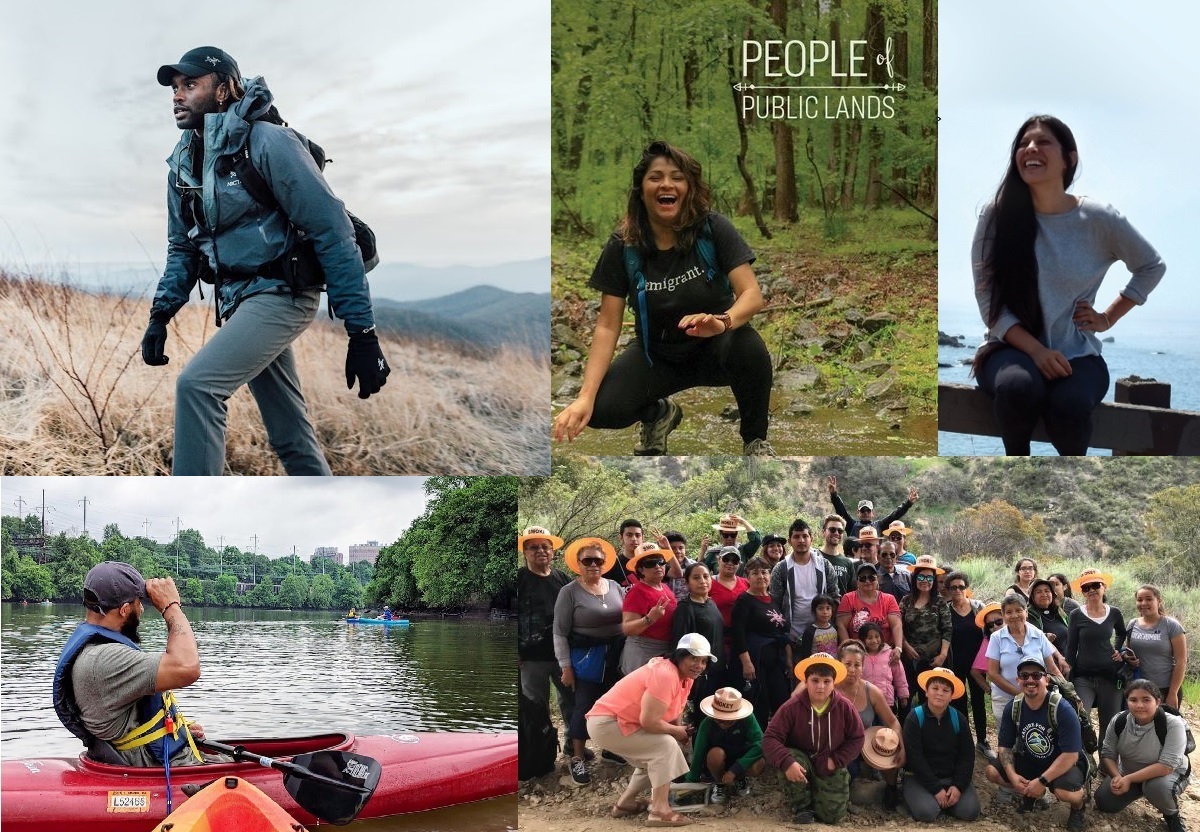Current events, from the COVID-19 pandemic to the uprising for Black lives, have shone a spotlight on systemic racism in the US. What Black people, Indigenous people, and people of color have always known finally broke through to white America and forced a long-overdue national conversation on racial (in)justice. For BIPOC communities, the work toward justice began long before the deaths of George Floyd, Breonna Taylor, Ahmaud Arbery, and so many others.
This reckoning extends to the mainstream environmental movement, which was built on white supremacist beliefs of superiority and domination. Large environmental organizations are facing our overwhelming whiteness and our roles in achieving racial and environmental justice.
Access to nature is a human right—an Indigenous concept returned to this occupied land, stolen from native groups, on which we live. If we hope to advance a just, equitable, and inclusive outdoors movement, we must view antiracism as well within our lane and seek to expand access to nature. We must listen to BIPOC and other marginalized communities who have worked for justice and equity long before this current moment.
For years, organizations like Outdoor Afro and Latino Outdoors have worked to change the narrative about “who belongs outdoors,” while creating spaces for Black and Brown people to experience joy in nature. Organizations like Melanin Base Camp have developed guides to Outdoor Allyship. More recently, Leah Thomas explained why every environmentalist should also be an anti-racist.
This movement is dynamic and has been for years. While there are too many people and organizations to name here, I’d like to share a few at the forefront from whom I have learned so much.
-
Ambreen Tariq founded the social media initiative @BrownPeopleCamping to highlight the role privilege plays in who can access the outdoors and to build a community of people to dismantle the barriers that prevent BIPOC people from experiencing the joys of nature. As a Muslim and South Asian–American immigrant, Tariq explores her own outdoors narrative while elevating others to promote greater diversity on our public lands and in the outdoors community.
-
One trip to Yosemite made Ruby Rodriguez fall in love with nature and want to get her community outdoors. She serves as the director of programs and operations for Latino Outdoors and is now working with the National Park Trust to connect the Latinx community in Fresno with Yosemite National Park.
-
James Edward Mills and the Joy Trip Project are exploring how to lead a harmonious life in balance with the natural world and the rest of humanity. In addition to reporting on outdoor recreation and conservation, the Joy Trip Project in collaboration with Nicole Jackson, a member of the Next Generation Advisory Council at the National Parks Conservation Association, launched Black in National Parks Week, part of an ongoing movement to highlight stories from BIPOC communities on public land and in the environmental conservation movement.
-
Ron Griswell is the founder of HBCUs Outside—a nonprofit organization focused on making the outdoors more accessible, especially for historically Black colleges and universities (HBCUs) students and alumni. It’s part of Ron’s larger mission to help create a more diverse, inclusive, and equitable future for our public lands.
-
Jolie Varela and Indigenous Women Hike are working to reconnect Indigenous women to their ancestral homelands to foster healing and community through nature outings and raising the profile of Native place names and Indigenous history on public lands.
The work these partners and others are doing is essential to building a more equitable outdoors. The Outdoors for All Campaign team is also advancing local partnerships to expand equitable access to the outdoors:
-
Garrett Dempsey in Detroit, where groups including Sierra Club formed Detroit Outdoors to expand urban parks long neglected by the government, provide free recreation equipment, and create spaces for the city’s youth and families.
-
Roberto Morales in Los Angeles, where many young people do not have the transportation, gear, or societal privilege to access nearby nature in the San Gabriel Mountains. A diverse coalition of organizers have led outings, and will again after the pandemic, and are dismantling barriers to get young people outside while promoting conservation at the same time.
-
Mabari Byrd in Philadelphia, where Outdoors for All is working to connect the city’s youth and veteran communities to the Delaware River watershed through outdoor activities, experiential education, and advocacy.
-
In New York City, Sierra Club Military Outdoors has worked with women veterans, many of whom are single mothers, to develop a community and heal from service-related trauma through shared experiences in the outdoors.
This is a short list of leaders across the country working to make the outdoors more equitable and accessible. Their work is part of an incredible movement that is reshaping intersectional environmentalism. 2020 has made it clear that we won’t achieve racial justice by maintaining the status quo. By listening to the wisdom and supporting the work of Black and Brown people in the environmental and outdoors movements, perhaps we can help create an outdoors that is truly for all.
